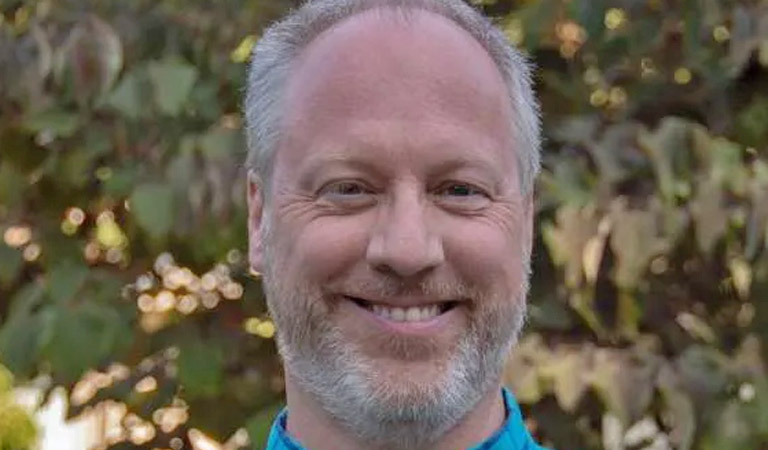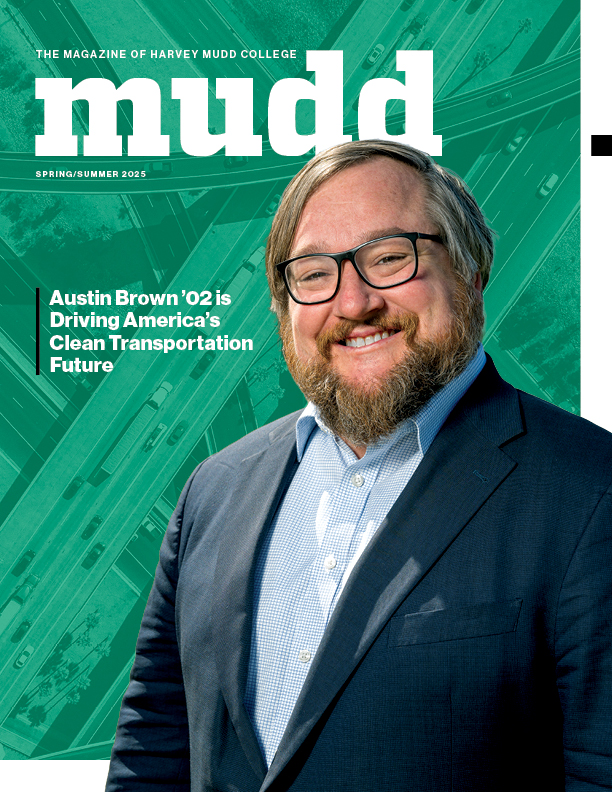Harvey Mudd College Chemistry Professor Adam Johnson Awarded 2024 James Flack Norris Award for Outstanding Teaching of Chemistry
July 24, 2024
Adam Johnson, a faculty member in the Harvey Mudd College Department of Chemistry since 1999, will receive the 2024 James Flack Norris Award for Outstanding Achievement in the Teaching of Chemistry alongside colleagues Barbara Reisner, professor of inorganic and materials chemistry at James Madison University, and Joanne Stewart, Elmer E. Hartgerink Professor of Chemistry at Hope College. This prestigious award, given by the Northeastern Section of the American Chemical Society, recognizes the exceptional contributions of these scholars to the field of chemistry education, particularly through the groundbreaking IONic project and their dedication to mentoring future teacher-scholars in inorganic chemistry.
Transformative Impact on Inorganic Chemistry Education
The award committee commends Johnson, Reisner and Stewart for their creation and ongoing leadership within the Interactive Online Network of Inorganic Chemists (IONiC), which stemmed from Johnson’s idea of bringing together inorganic chemists to talk about teaching. Reisner and Stewart joined during the second year of the project and were instrumental in expanding the project due to their experience and expertise in chemical education research.
The trio have not only established a valuable repository of inorganic chemistry content that is free to use (Virtual Inorganic Pedagogical Electronic Resource [VIPEr] website), but they also have built a “community of practice” that is supportive, engaged and dedicated to improving student learning. Their efforts have broken down silos of teaching and learning in inorganic chemistry to make teaching a community-based endeavor where faculty can engage with and support each other through workshops, webinars, research symposia, a community chat and the VIPEr website. This concept has allowed participating faculty to expand their networks beyond the walls of individual institutions across the country and worldwide.
Johnson’s Contributions and Dedication to Teaching and Learning
The IONic project has evolved to focus on understanding what inorganic chemists teach, how they teach and making proposals for what should be taught. Johnson has contributed content and assisted with various outreach activities, including videos, blogs and the project’s Discord channel.
Johnson, Ray and Mary Ingwersen Professor of Chemistry and associate department chair, says that receiving the James Flack Norris Award is significant and an honor he is proud to share with late Harvey Mudd chemistry professor J. Arthur Campbell, who received the award in 1964. “It shows that the broader chemical education community appreciates and values the work we have done for the last 18 years. While specifically awarded to me, Stewart and Reisner, it also belongs to the much larger group of around 20 faculty who volunteer their time to keep our project running. I am proud of the work we have done to make the teaching of inorganic chemistry easier for us all.”
Johnson’s innovative teaching and research methods have significantly advanced the understanding and teaching of inorganic chemistry. He says his passion for teaching stems from his desire to mentor the next generation of chemists, inspired by his own strong relationship with his undergraduate advisor. He emphasizes the importance of making theoretical concepts learned in lecture courses applicable to the molecules the students make in the laboratory. “One reason I teach is because I learn, every year, from my students. They ask good questions, push my own knowledge and force me to understand my field even more deeply,” Johnson says, adding that the relationships built with students have been one of the best parts of his job. “Seeing a student finally ‘get’ it after grappling with new material is one of the most satisfying aspects of teaching.”
Award Significance and Future Directions
Due to the great success of the team’s efforts, the community of practice model is now being applied beyond the inorganic subdiscipline and is having a positive impact on the larger chemistry teaching community. Johnson, Reisner and Stewart are now focused on understanding and improving the inorganic laboratory curriculum, with proposals in development to secure additional National Science Foundation funding for new laboratory materials.
Johnson, Steward and Reisner will deliver a joint address about the collaborative nature and successes of the IONic project at the Northeastern Section of the American Chemical Society’s award ceremony this November in Boston.
